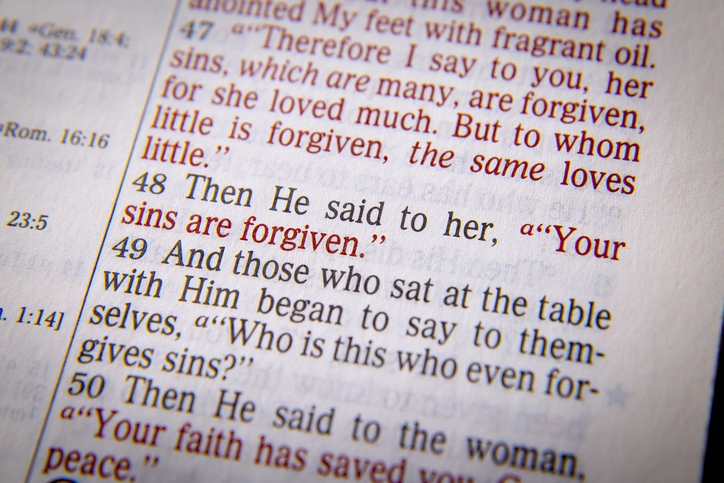Adulthood is Expensive (When You Realize There’s No Such Thing As Free Pizza)
You ever open your bank account and wonder who’s been secretly draining it dry? Oh wait—it’s just life. Rent. Groceries. That random subscription you swore you’d cancel three years ago but still haunts your statements like a ghost of bad decisions past. Adulthood is expensive, and nobody—not your parents, not your high school economics teacher, not even that overly chipper college advisor—sat you down and said, “Hey, just so you know, you’re going to spend most of your 20s and 30s figuring out how to afford breathing.”
Seriously, why didn’t anyone warn us? One day you’re scrounging quarters for a soda with your buddies, and the next you’re Googling “is it cheaper to live on ramen or sell my kidney?” (Let me tell you, go with the ramen.)
But here’s the kicker: the cost of adulthood isn’t just financial—it’s emotional, mental, and spiritual too. And while we can’t dodge the bills (trust me, I’ve tried dodging and pleading—neither works), we can figure out how to carry the weight without going broke in every sense of the word.
The Sticker Shock of Growing Up
Let’s start with the obvious: money. You’ve got rent or a mortgage, utilities, car payments, insurance, groceries—and that’s before you even dream of “fun” stuff like a coffee that doesn’t taste like regret. Then come the sneak attacks—car repairs, medical bills, that wedding you have to attend because saying “no” feels like committing a social felony.
I’ll never forget the first time I shelled out $200 for a tire after hitting a pothole that I’m convinced was lying in wait just to ruin my week. I stood in the shop, debit card trembling like it was auditioning for a drama, thinking, “This is it. This is adulthood. I’m paying for air and rubber, and there’s no gold star, no applause—just a mechanic who doesn’t even say ‘good job.’”
But it’s not just the dollars. It’s the constant juggling—deciding what gets paid now, what can wait, and what you’re just hoping doesn’t catch up with you. It’s exhausting. And if you’re like me, you’ve had those moments where you wonder, “Am I doing this wrong? Is everyone else secretly rolling in cash, or am I just terrible at this?”
The Hidden Costs No One Talks About
Then there’s the stuff that doesn’t show up on a statement. The emotional toll of stressing over whether you can make ends meet. The mental drain of planning, budgeting, and second-guessing every $5 purchase. The spiritual wrestle of wondering if God’s really going to show up when the numbers don’t add up.
Because let’s be honest—sometimes faith and finances feel like oil and water. You read Matthew 6:26—“Look at the birds of the air; they do not sow or reap or store away in barns, and yet your heavenly Father feeds them”—and you’re like, “Great, but I’m not a bird, and my landlord isn’t taking ‘God will provide’ as a Venmo payment.”
I’ve been there. I’ve had seasons where I stared at my budget like it was a jigsaw puzzle missing half the pieces, praying for a miracle while panic-buying store-brand mac and cheese. And here’s what I’ve learned: adulthood’s expense isn’t just about surviving—it’s about learning to trust when the bank balance looks more like a cry for help than a safety net.
How to Handle the Cost Without Losing Your Soul
So how do we do this? How do we adult without letting the price tag—of money, energy, or peace—wreck us? Here’s what’s helped me (and I’m still a work in progress):
1. Tithing: Put God First
Okay, I know—some of you just cringed. “Tithing? Isn’t that just church people guilting me for money?” Nope. I don’t work for a church, and I’m not asking for your cash to land in my pocket. This is about what God asks: 10%. That’s it—just 10% of what you make, that’s less in percentage than you probably tipped your waiter last night. And He wants it first, before you pay the bills or splurge on takeout. Why? It’s not about funding a private jet for a pastor—it’s an act of obedience, love, respect, and honor to support His work through the body of Christ, your local church. Scripture says, “Bring the whole tithe into the storehouse” (Malachi 3:10), and God promises to bless it. It’s not a magic trick for wealth; it’s a heart posture that says, “God, You’re in charge.”
And if you’re skeptical, I get it—I was, too. I remember vividly the first time I tithed when I was genuinely broke. My budget screamed, “Not possible,” and my brain screamed even louder. But I wrote the check anyway (yep, back when we actually wrote checks), and somehow—though the math still doesn’t add up—it worked. I had exactly enough. Not extra, not overflowing, but enough. It wasn’t dramatic, but it shifted something deeper: my trust. Ever since, I’ve seen God honor that decision again and again in quiet, faithful ways. Tithing isn’t about what leaves your wallet—it’s about what grows in your heart.
2. Start Small, but Start Somewhere
You don’t need a finance degree or a spreadsheet—just start tracking what’s coming in and going out. I use an app, and there are tons of free ones out there. Knowing where your money’s going is half the battle. It’s like flipping on the lights in a dark room—still a mess, but at least you can see what you’re dealing with.
3. Say No to the Comparison Trap
Social media will convince you everyone else is thriving while you’re eating toast for dinner again. Truth is, most people are just as stretched as you—they’re just better at staging the photo. Your worth isn’t tied to your bank account, and neither is your faith. Let that sink in.
4. Ask God First (and Maybe a Friend Second)
Before you spiral into “I can’t do this,” pray. Philippians 4:19 says, “And my God will meet all your needs according to the riches of his glory in Christ Jesus.” He’s not promising a private jet, but He’s promising provision. And if you’re still lost, talk to someone—a friend, a mentor, someone who’s been there. You’d be amazed how many people have practical tips they’re happy to share over coffee.
5. Give Yourself Grace (and a Budget for Coffee)
You’re not going to master this overnight. I’ve overspent, under-saved, and made questionable calls (looking at you, $15 impulse candle that smells like “autumn regret”). Beating yourself up doesn’t fix it—learn, adjust, keep going. And yes, budget for something small that keeps you sane—a specialized coffee, a book, a game. Life’s too short to skip all the joy.
Generosity Is More Than Money
And while we’re here, let’s talk about giving back. First thing to remember is that generosity isn’t just about cash. Sometimes the most impactful thing you can give someone is your time, your encouragement, or a simple act of kindness when life feels tough. Adulting is expensive, yes—but don’t let tight finances trick you into thinking you have nothing valuable to offer. Bake a loaf of bread for a neighbor. Help someone move. Write a genuine note of encouragement (texts count!). Give the gift of your presence when someone is hurting. God’s economy values these things deeply because they echo His character. Your wallet might feel thin, but your capacity for generosity is endless.
God’s Economy: Miracles and Faithfulness
Here’s where it gets good: God doesn’t play by our balance sheets. Take the widow in 2 Kings 4—she was drowning in debt, down to her last jar of oil, with creditors banging on her door to take her sons as payment. She wasn’t just broke; she was broken. Elisha didn’t hand her a wad of cash; he told her to gather jars—empty ones—from her neighbors and pour what little she had. And God? He stretched that oil until every jar was brimming, enough to pay her debts and keep her family alive. It was a miracle, straight-up—a provision so perfectly timed and tailored, it’s almost too wild to believe.
But realistically, most of us aren’t going to see oil multiply in our kitchens. Some will—God still does miracles, and I’ve seen Him pull off some jaw-dropping stuff. But for most of us, His provision looks less like a viral TikTok moment and more like a slow, steady burn. It’s about faithfulness with what He’s already given us. That’s where the Parable of the Talents comes in (Matthew 25:14-30).
A master hands three servants different amounts—five talents, two talents, one talent—and takes off. The first two invest what they’ve got, doubling it. The third buries his, too scared to risk it. When the master comes back, he praises the faithful ones—not just because they doubled the money, but because they respected what he’d entrusted them with. They honored him by honoring what he entrusted them with. “Well done, good and faithful servant! You’ve been faithful with a few things; I’ll put you in charge of many things.” The third guy? He gets nada—not for failing to profit, but for failing to even try.
God’s not asking you to turn $5 into a million—He’s asking you to be faithful with the $5. To respect what He’s given you, to use it wisely, to worship Him by trusting Him with it. It’s not sexy—no one’s throwing a party because you paid your phone bill on time—but it’s holy. Every time you budget, save, or give, you’re saying, “God, this is Yours. I trust You with it.” And He honors that, sometimes with a miracle, sometimes with just enough to get you through.
The Bottom Line
Yeah, adulthood is expensive. It’ll cost you money, time, and probably a few tears along the way. But it doesn’t have to cost you your peace. You might not get a jar-of-oil miracle (though I’m not ruling it out—God’s got surprises up His sleeve). More likely, you’ll get the quieter kind of provision—the strength to keep going, the wisdom to stretch what you have, the community to lean on when it’s tight.
You’re not in this alone. God’s got you, even when the bank account’s screaming otherwise. So take a deep breath, check your app, and trust that your Heavenly Father, who owns it all, is still by your side—one very expensive step at a time.
☕ A little faith, a little courage, and a whole lot of stubborn joy. – Tonya
What’s the most ridiculous “adulting is expensive” moment you’ve had? Drop a comment—I’d love to hear your stories!
© 2025 All posts written by Tonya E. Lee








